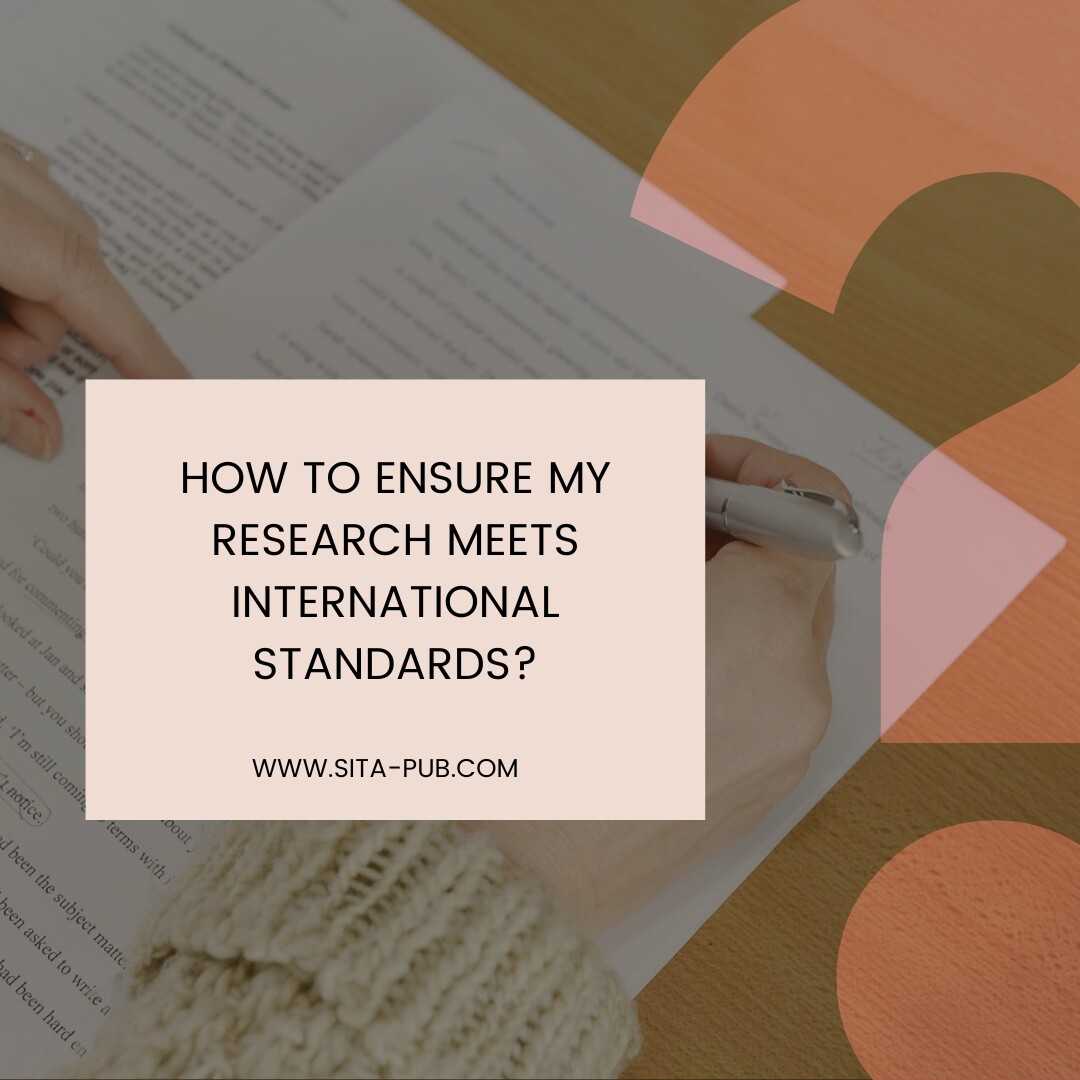How to Ensure My Research Meets International Standards?


Making sure your research follows international standards is very important. It helps you gain respect, work with others, and get published in well-known journals. Here are some simple steps to help you make sure your research meets these standards.

First, find out what international standards apply to your area of research. These include rules about ethics, research methods, and how to report your findings. Organizations like the World Health Organization (WHO) and the International Organization for Standardization (ISO) offer useful guidelines. By checking these resources, you can set a strong base for your research.
Ethics are very important in research. If your study involves people or animals, you must follow ethical rules. Get approval from ethics committees and make sure to obtain informed consent from participants. Familiarize yourself with guidelines like the Declaration of Helsinki, which focuses on research involving humans. Following these ethical rules helps protect your participants and makes your findings more trustworthy.
Having a clear methodology is essential for meeting international standards. Describe how you will conduct your research, including your study design, how you will collect data, and how you will analyze it. Make sure your methods are easy to understand and can be repeated by others. Using established tools and procedures can make your research more reliable. For example, using tested surveys or recognized lab methods can strengthen your study.
Being open about your research process helps you meet international standards. Follow established reporting guidelines for your field. For example, guidelines like CONSORT for clinical trials or PRISMA for systematic reviews tell you what information to include in your paper. This helps readers understand your study better. Also, make sure your research is thorough—using the right number of participants, control groups, and proper statistical methods will improve the quality of your work.
Engaging with researchers from around the world can provide valuable insights into international standards. Attend conferences, join workshops, and be part of professional organizations to meet other researchers. Discussing best practices and new ideas can help you stay informed and improve your work. Collaborating with international researchers can also give you new ideas and methods for your research.
Research standards can change, so it’s important to stay updated. Subscribe to academic journals, follow relevant organizations, and keep learning through professional development. This way, you can adjust your research practices to meet the latest international standards.
Here are some examples of international standards in different research fields:
Field | Standard | Description |
Medical Research | Declaration of Helsinki | Ethical rules for medical research involving human subjects. |
Social Sciences | APA Publication Manual | Guidelines for writing and formatting in psychology and social sciences. |
Clinical Trials | CONSORT Statement | Guidelines for reporting randomized controlled trials. |
Systematic Reviews | PRISMA Statement | Guidelines for reporting systematic reviews and meta-analyses. |
Environmental Research | ISO 14001 | Standards for managing environmental impacts. |
Education Research | AERA Standards | Guidelines for conducting and reporting educational research. |
Not following international standards can have serious consequences, such as:
Rejection from Journals: Your research paper may be rejected by journals if it doesn't meet their guidelines or ethical rules. This can delay your publication.
Damage to Reputation: Not complying can hurt your reputation as a researcher. Colleagues may doubt the validity of your work, leading to lost opportunities for collaboration and funding.
Ethical Violations: Ignoring ethical guidelines can lead to legal problems, loss of funding, and harm to research participants.
Ensuring your research meets international standards involves learning about guidelines, following ethical practices, using clear methods, being open about your process, connecting with the research community, and staying updated. By focusing on these aspects, you can make your work more credible and increase its chances of being accepted in respected journals, ultimately contributing to knowledge in your field.
Elevate Your Manuscript with SITA Academy’s Expert Services

If you need to have your file edited by a native speaker and formatted according to your journal's guidelines, look no further! Contact SITA Academy today for professional editing and formatting services tailored to meet your specific requirements. Our expert team is ready to help you enhance the quality of your work and ensure it adheres to the necessary standards.
If you have any questions, inquiries, or would like to learn more about our services, please don't hesitate to reach out to us. Our dedicated team is ready to assist you.